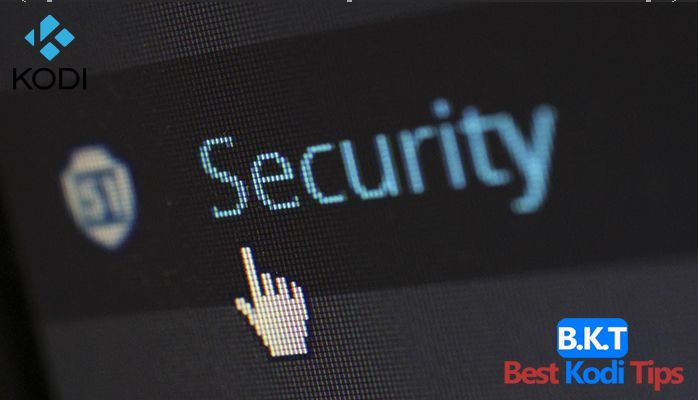While it easy to assume that small businesses are at less risk from cyber-attacks, the sad truth is they are often more susceptible than the larger businesses and corporations.
Yes, small businesses naturally have less data to steal, but their smaller scale usually means their internet security processes aren’t at the same standard of large organizations. Simply put, small businesses have less secure networks that are easier to target.
This typically occurs to a smaller budget that results in a less robust security system. These businesses often have fewer – if any – IT security specialists, while many security practices are simply outdated. Many are not even aware of the extent of the security risks they face.
Thankfully, technology has improved at such a pace where cost-effective internet security practices are available to small businesses. Some don’t even require a massive investment, but rather a better understanding of the best security practices available within their budget.
Here are the seven best internet security practices for s small business:
Utilize Secure Passwords
Passwords are an overlooked aspect of internet security. Many small business owners and employees use simple passwords that are rarely changed, mainly due to convenience. But this is a terrible process as a large percentage of security breaches occur due to stolen or easily copied passwords.
So, a simple yet effective measure to take is to simply enforce stringent password processes across the organization. This means creating robust passwords that feature a combination of uppercase and lowercase letters, numbers, and symbols. These should be regularly changed throughout the year to ensure security threats are kept to a minimum.
Avoid using predictable passwords with names, dates, or other personal information, while ensuring passwords are included on all computing hardware and mobile devices.
Back Up All Data
Even the best internet security processes don’t guarantee you won’t face a security breach, so it’s always important to be prepared should the worst happen. In the case of data being stolen, one effective security measure that reduces the consequences of a security breach is to back up all important data. Research from Euromillions has shown that with the introduction of GDPR, looking after customer data is know more important than ever – with huge fines on the cards for companies who lose their customer data.
This includes any word documents, spreadsheets, HR data, finances, photos, emails, and other important databases. Make this mandatory process to ensure you have backups of all business data, which is a lifesaver should any vital data be stolen, keeping operations running and ensuring you can’t be held to ransom for data.
Consider using both hardware and cloud systems for backing up data. Cloud storage is useful because it has high encryption while the data is always stored remoted, ensuring there is backup data not connected to your local network.
Invest in a Virtual Private Network (VPN)
A virtual private network (VPN) is a worthwhile investment for any small business looking to increase internet security. A VPN allows a business to connect to the internet through remote server with premium level encryption, ensuring all activities are private and completely secure.
When nobody can see what you are doing on the internet it becomes impossible to track and intercept important data. Given the fact the internet is the most used method of communication for small businesses, having a VPN is a no-brainer as it provides the utmost protection for any important business data shared over the internet.
Not only that, VPNs are available on any device, including computers, laptops, smartphones, and tablets, which is especially useful for businesses working remotely or that travel frequently. Using open Wi-Fi for business increases the security risks, but with a VPN your activities are secure and private no matter where you work from.
VPNs aren’t expensive either, with flexible subscriptions available from various vendors, making it easy to find a service that meets the unique requirements of every small business.
Use Firewalls and Antivirus to Prevent Malware
Malware attacks are all too common for small businesses, yet there are simple practices that can be used to prevent unwanted attacks from viruses and other malicious software. These often come from phishing emails that employees unwittingly open, making malware an often-overlooked security risk.
Antivirus software is a must for any small business. It provides protection against malware attacks from phishing emails and other malicious software, ensuring nothing is installed onto company computers. Phishing attacks usually target smaller businesses because of lack of antivirus software, so never overlook the importance of a good antivirus system.
Additionally, make sure to use firewalls all computers. These are already installed with any operating system and provide the first line of defense for networks, but many forget to turn them on or update when necessary. It’s free and very useful, so make sure to use it!
Protect Mobile Devices
With more and more business processes occurring on smartphones and tablets, it’s important to provide the same level of internet security for mobile devices that on-site computers have.
Start by activating strong password processes for all mobile devices – even consider fingerprint recognition if the device has it. Configuring devices so they are trackable and/or can be locked when lost or stolen is another good security measure for mobile devices.
Furthermore, ensure that all mobile devices are completely up to date with the latest software and operating systems, replace all older devices that no longer have manufacturer support, and make sure VPNs are used when browsing the internet on public networks.
Always Update Software, Systems, and Application
It’s a simple yet effective internet security practice – always update software, applications, and systems as soon as they become available. Cyber criminals look for weak points to enter a network and outdated software provides such as an opening.
While it may be obvious to update all software and systems, not all employees are aware of how important this is for security, so make sure software updates mandatory across the business to minimize the risk of a security attack.
Educate Employees on Risks
Simply knowing the obvious signs of internet security risks is one of the best ways to prevent a cyber-attack. Educate all employees on any new processes you implement (such as secure passwords, VPNs, and antivirus software) while identifying the most obvious risks they face.
For instance, phishing emails are a big threat to small businesses and many employees cannot recognize fake email from genuine email. Look for obvious signs that the email is malicious, such as spelling errors, poor quality graphics, suspicious files, and any claims about security risks and breaches.
Make sure staff with administrator privileges don’t use their account to open email or use the internet, while ensuring everyone knows how to scan for malware if they feel there has been a security breach.















Comments